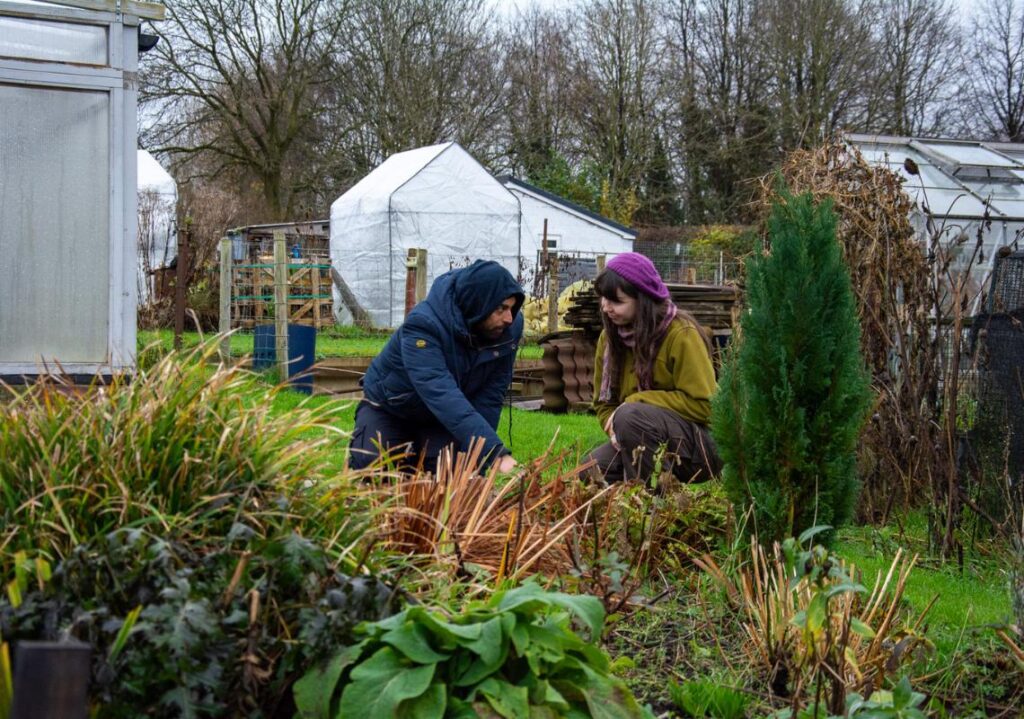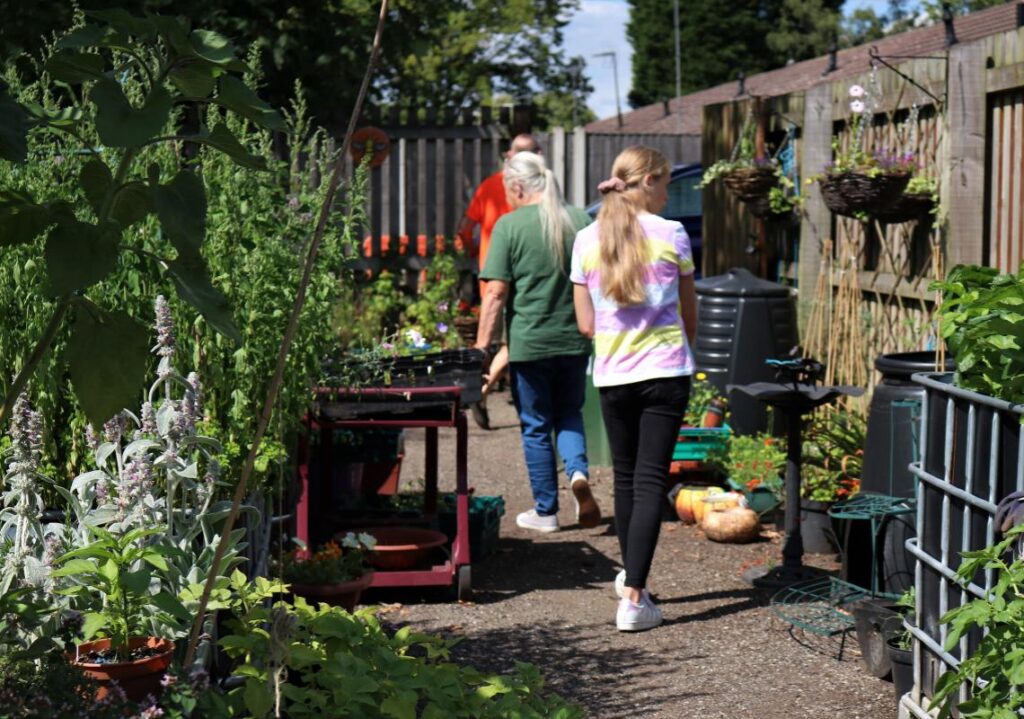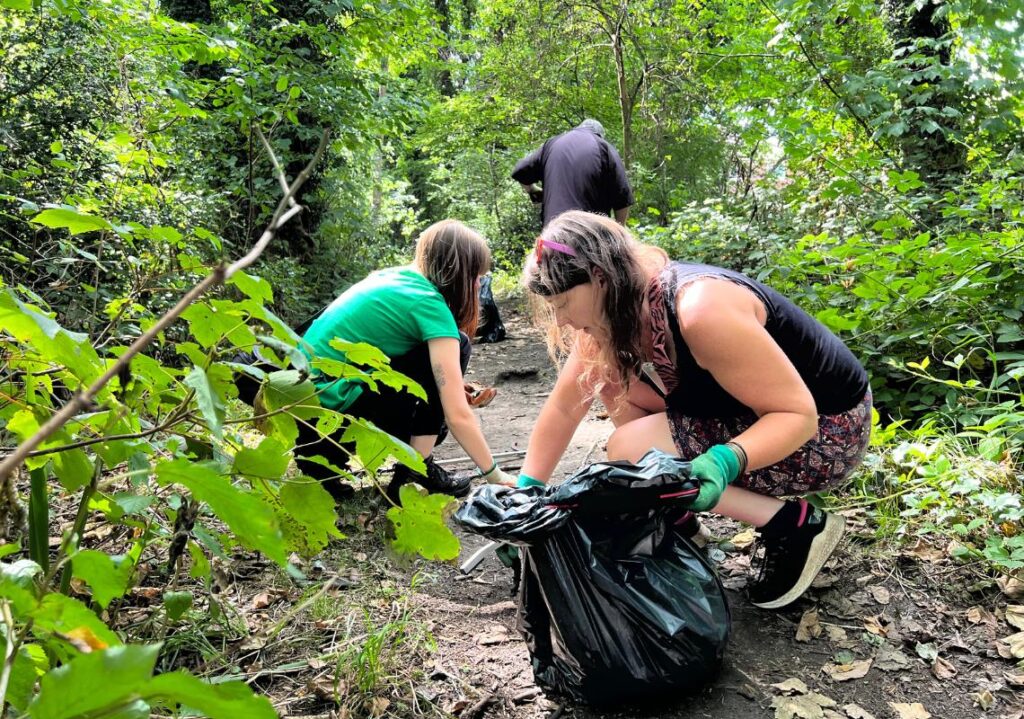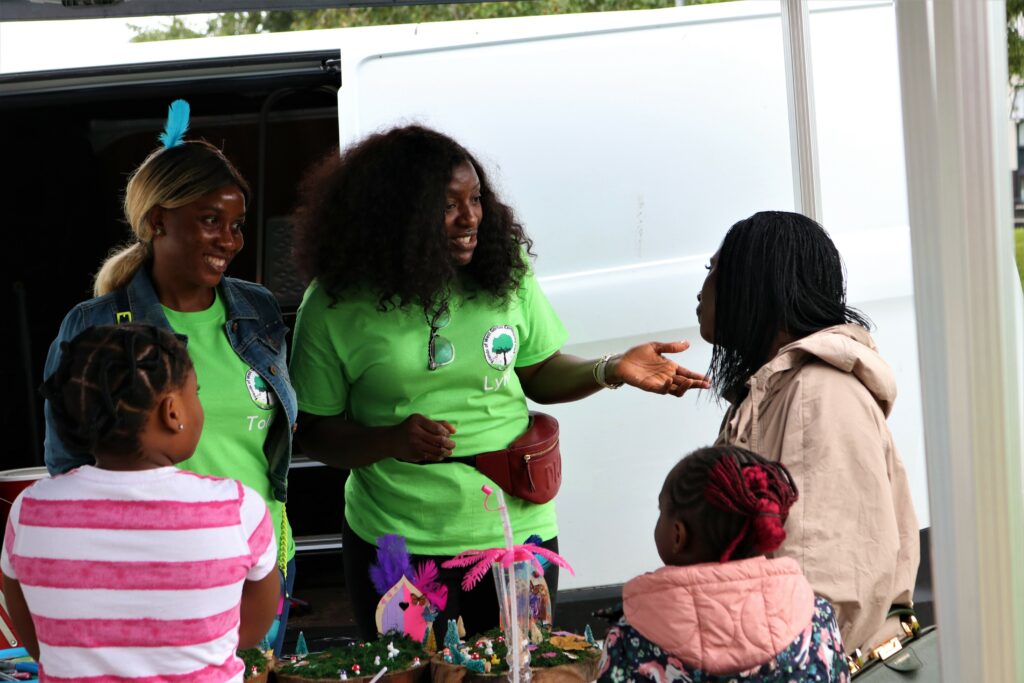NEWS – Introducing Groundwork Greater Manchester’s Community-Led Nature Stewardship Package
Friday 5th September 2025 marks the launch of the Greater Manchester Local Nature Recovery Strategy (LNRS); a ten-year plan to restore, protect and connect habitats, making nature part of how the city region grows and develops.
As part of the launch, the Greater Manchester Combined Authority will host a round table event with Mayor Andy Burnham, Defra Minster for Nature Mary Creagh and sector leaders, including Groundwork’s own Michaela Howell, Director of Communities & Neighbourhoods.
Recognising that everyone has a role to play in nature recovery, we have taken this opportunity to launch our new community-led nature stewardship package. This programme supports communities to take the lead in creating, restoring and caring for their local green and blue spaces. It combines hands-on support for community-led stewardship, training to build nature literacy and confidence, and digital tools to measure changes in biodiversity.
Michaela commented:
The LNRS is a fantastic platform for us all to double our efforts and work harder for nature. Groundwork GM believes residents and community groups are essential partners in this. By empowering communities to take an active and thoughtful role in caring for the nature on their doorstep, we can build a more sustainable, equitable, and resilient future for nature and for people.

What is community-led nature stewardship?
Community-led nature stewardship is all about local people taking the lead in creating, improving and caring for the green and blue spaces in their own neighbourhoods. It’s built on the idea that residents who live in an area are the experts in that place: they know its needs and challenges best. By empowering communities to take an active and thoughtful role in caring for their environment, we can build a more sustainable, equitable, and resilient future for all.
Key principles of community-led nature stewardship
Community-led stewardship isn’t about residents doing everything on their own. Instead, it means that they are:
- Meaningfully involved from the very beginning and throughout. While some groups may choose to initiate and manage activities themselves, others may choose to guide and inform the process.
- Empowered to shape and/or manage the site in a way that works for them. They can get support from professionals and partner organisations, but the community’s vision and goals are at the forefront.
This framework is designed to ensure that the care and management of neighbourhood sites will last for future generations. By putting the community in control, it creates a sustainable model where local knowledge and passion are the driving forces behind long-term environmental protection and community empowerment.

Community-led nature stewardship outcomes
Community-led nature stewardship benefits the environment, the people involved and their wider community.
Environmental Outcomes
- Nature is restored and biodiversity improved for example by planting native species, creating habitats for wildlife, and removing invasive plants.
- Healthier habitats are created for example by monitoring local rivers and green spaces and addressing problems like pollution or disease.
- Climate resilience spaces are created by adding natural solutions for example by planting trees to improve air quality, provide shade and lower temperatures or restoring wetlands to slow the flow of water, increase water storage and reduce flood risk.

Community Outcomes
- Stronger community connection: working together on a shared project builds strong bonds among neighbours and helps people feel more connected to their community.
- Empowerment and ownership: when people have a say in how their local environment is managed, they feel a sense of pride and ownership, which motivates them to continue their efforts and ensure the project’s long-term success.
- Community safety: well-maintained green and blue spaces can deter anti-social behaviour and create a more secure environment. When residents actively care for and use a space, it becomes a hub of positive activity, increasing a sense of ownership and natural surveillance.
- Economic opportunities: Community-led projects can create local economic benefits which include developing new skills through training, creating small enterprises, such as selling produce from a community garden and boosting local tourism by making an area more attractive.

Individual Outcomes
- Increased knowledge and skills: individuals can notice, name and nurture the flora and fauna in their local spaces, having the skills to take care of it in the long term
- Improved well-being: spending time outdoors and being actively involved in nature has been shown to reduce stress, improve mental health, and boost overall physical fitness.
